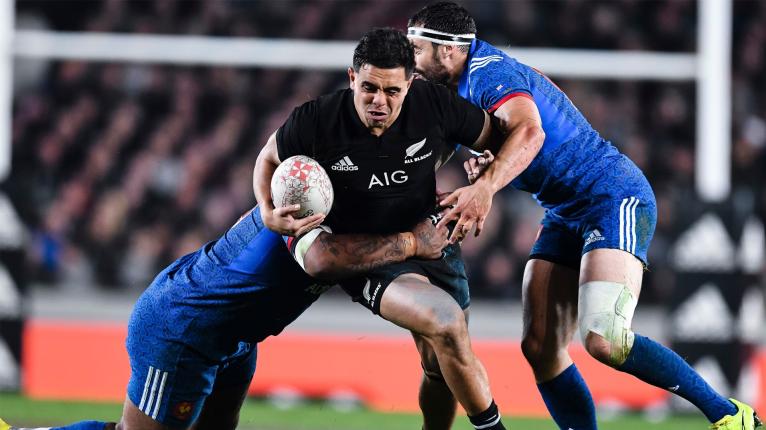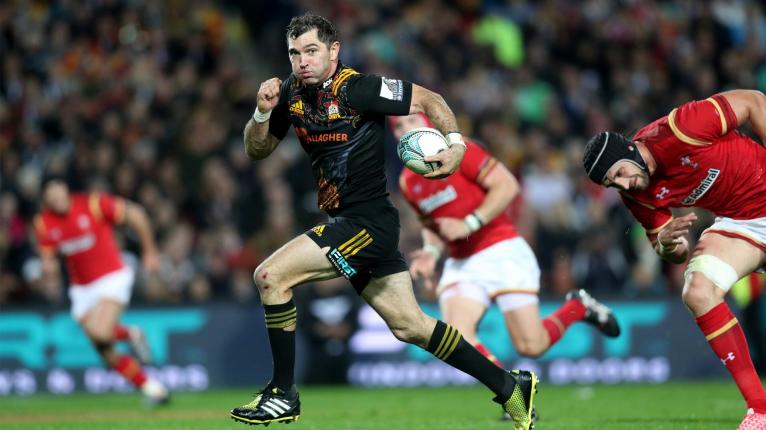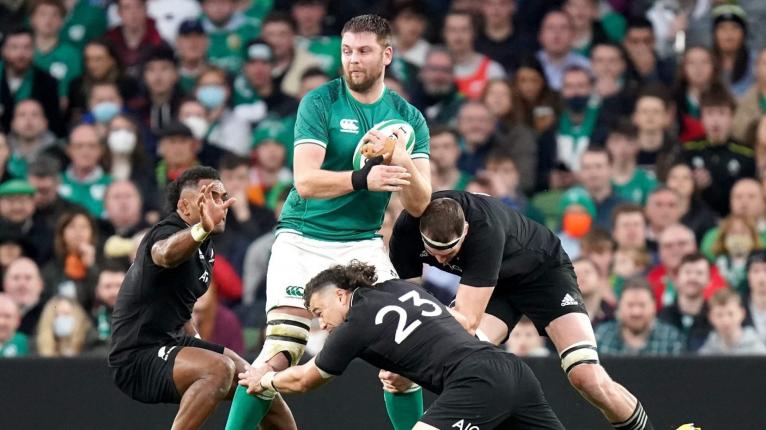Ireland’s latest defeat of the All Blacks has added more fuel to what’s developing into one of the most thrilling modern rivalries of rugby and should have fans salivating at the thought of next year’s three-match series between the two sides in New Zealand.
When the one-off mid-year internationals were replaced by three-match series following the 2011 World Cup, fans were promised more meaningful contests like the days of old, with the opportunity for teams to feel each other over the better part of a month supposedly set to create more exciting spectacles.
That’s never really transpired in New Zealand, however, with the 2017 British and Lions tour the only time that the All Blacks have suffered even a single loss in the June internationals.
Far from being a tense series-decider, the third test of the tour is always a dead rubber game where the visitors are more often than not flogged by an All Blacks side that’s just starting to click into gear – while their northern opposition are flagging after a long season.
Ireland’s trip to NZ could prove to be the exception.

It’s still early days, with seven months to go before Ireland will head south at the end of a Northern Hemisphere test season which is only really just kicking off, but the signs are positive that the team Andy Farrell brings to New Zealand in 2022 will be considerably better prepared for the challenge of playing the All Blacks at home than the other sides that have taken on that trial over the past decade.
Five times throughout that period we’ve seen undermanned, under-strength nations head to New Zealand and they’ve been mostly put to the sword.
The tough thing for visiting sides is that the All Blacks have inevitably been the top side in the Southern Hemisphere, topping the ladder in the Rugby Championship in every season that a team has travelled south for a three-match series.
In contrast, not once have the Six Nations champions toured NZ.
In 2012, the visiting Irish side had finished third earlier in the Northern Hemisphere’s premier international competition, achieving just a 50 per cent win record throughout the competition – which really amounts to just one win over the properly competitive sides, given the relative gimmie outcome of facing off with Italy.
Wales were the next team to travel south, in 2016 and the clearest indication of the strength of that side was that their mid-week team – though still populated by men like Sam Warburton and Gareth Davies – was crushed 40-7 by a Chiefs side sans any of their internationals.
A year later, however, France couldn’t even manage that. The French team that arrived in 2013 had only recently finished bottom of the table, suffering defeats at the hands of Italy, Wales and England.
In 2014, it was England’s turn to head to New Zealand but with the Premiership final finishing only a week before the first test of the series, England started on the back foot without any players from Northampton or Saracens for the opening game.
To their credit, however, England put up a strong fight and suffered two narrow losses in the opening two fixtures, going down 15-20 in Auckland and 27-28 in Dunedin. The end result, however, was the same, with that year’s Six Nations runners-up losing the series 0-3.
Wales were the next team to travel south, in 2016 and the clearest indication of the strength of that side was that their mid-week team – though still populated by men like Sam Warburton and Gareth Davies – was crushed 40-7 by a Chiefs side sans any of their internationals.

18, 14 and 40-point victories for the All Blacks over the nation that was supposed to be the Northern Hemisphere’s second-best side was hardly a ringing endorsement for that year’s Six Nations competition.
Finally, it was France who again toured NZ in 2018 after finishing fourth in that year’s Six Nations championship. Like England a few years earlier, France’s top players weren’t able to join the squad until the week of the first match thanks to the Top 14 final being played the week earlier, but even the semi-finalists were hardly given much time to embed themselves in the squad.
A bloodbath ensued, with the All Blacks racking up 137 points over the three games, and France managing just 38 in another whitewashing.
Adding to the lack of hype for all those tours was that no team had travelled to New Zealand having beaten the All Blacks the year prior. Only England in 2014 and France in 2018 had come up against the All Blacks shortly before their three-match tour, and both teams had suffered defeats – England by eight points at Twickenham, and France in back-to-back tests, going down 18-38 and 23-28.
While the 2022 Six Nations is obviously still to come, Ireland will enter the competition with short odds for taking out their first title under Andy Farrell, given the strong results over the past two seasons, where they’ve managed to beat each of their Six Nations oppositions bar France at least once.
Now that the three-match series have been pushed back to July, there should be zero issues with player ability for the tour and Ireland will be able to field their top team right from day one, injuries permitting, and the signs are all there that the All Blacks may finally have a challenge in their own backyard.
The latest win over the All Blacks means the drums will be banging even louder next season, although having to play both France and England away from home will add to the challenge.
More to the point, Ireland will arrive in New Zealand as the first team to have beaten the All Blacks in their most recent encounter and if the past two responses from the All Blacks when they’ve been pipped by the Irish are anything to go by, the July series should be intense.
Following Ireland’s first-ever win over NZ in 2016, the All Blacks arrived in Dublin with a point to prove two weeks later and were ruthlessly physical.
And despite Ireland getting the better of the All Blacks in 2018, the All Blacks bounced back at the 2019 World Cup and again stepped up their game against Ireland, putting in a clinical attacking showing to claim a 46-14 in the quarter-finals.
Now that the three-match series have been pushed back to July, there should be zero issues with player ability for the tour and Ireland will be able to field their top team right from day one, injuries permitting, and the signs are all there that the All Blacks may finally have a challenge in their own backyard.

Just twice over the past decade have New Zealand suffered defeats at home – to the Lions in 2017, and the Springboks a year later – but Ireland have the players and the pedigree to really push the All Blacks, as they showed in Dublin on Saturday afternoon.
It’s going to be considerably harder for them to pick up victories away from home without the passionate Aviva crowd signing out and cheering their side on, but the wintery conditions of July will suit the tourists next year and the outstanding recent rivalry between the sides will undoubtedly continue.
Following the loss to Ireland, All Blacks head coach Ian Foster said that it was far too soon to be looking ahead to next season’s mid-year tests but for everyone but the coach, the Irish win has already turned what could have been another paint by numbers series into something worth anticipating.
Ireland’s win over the All Blacks will clearly be a boost for the nation but it will also have reverberations throughout world rugby and as long as the top sides in the world are all on relatively equal pegging, the interest in the game will continue to rise.
An impossible-to-pick series between the historically top team in the world and the side that seems to have had their number in recent clashes is just another perfect narrative to keep fans intently focussed on the test calendar.



Comments
Join free and tell us what you really think!
Sign up for free